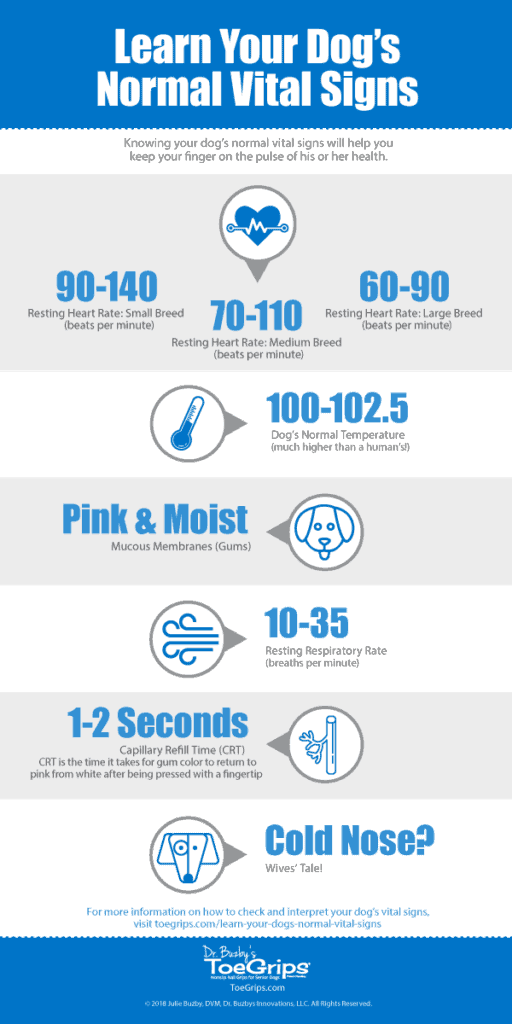Have you ever wondered how fast a chihuahua’s heart rate should be? Well, here’s a surprising fact: Chihuahuas actually have one of the fastest heart rates among dog breeds! Their tiny bodies require their hearts to beat faster to pump blood efficiently. So, just how fast should a chihuahua’s heart rate be? Let’s find out.
Chihuahuas typically have a resting heart rate between 100 to 160 beats per minute (bpm). This is significantly higher than larger dog breeds, whose heart rates range between 60 to 100 bpm. The higher heart rate of a chihuahua is a result of their small size, high metabolism, and energetic nature. However, it is important to note that heart rate can vary depending on factors such as age, overall health, and activity level. If you notice a consistently rapid heart rate or any signs of distress, it is crucial to consult a veterinarian to ensure the well-being of your furry friend.

How Fast Should a Chihuahua Heart Rate?
When it comes to our furry friends, their health and well-being are of utmost importance. Understanding their normal physiological parameters, such as heart rate, is essential for monitoring their overall health. In this article, we will explore how fast a chihuahua’s heart rate should be and what factors can influence it.
The Normal Heart Rate for a Chihuahua
A chihuahua’s heart rate can vary depending on various factors, including their age, size, and level of activity. Generally, a healthy adult chihuahua should have a resting heart rate between 100 and 140 beats per minute (bpm). Puppies tend to have higher heart rates, often ranging from 120 to 160 bpm.
It’s important to note that a chihuahua’s heart rate can significantly increase during times of physical activity or excitement. It’s not uncommon for their heart rate to reach 200 bpm or higher during these periods. However, their heart rate should return to a normal range once they have calmed down.
If you notice that your chihuahua’s heart rate consistently falls outside the normal range, it’s essential to consult a veterinarian for a thorough examination. An irregular heart rate can be a sign of underlying health issues that require medical attention.
Factors That Can Influence a Chihuahua’s Heart Rate
Several factors can affect a chihuahua’s heart rate. Understanding these factors can help you better interpret your chihuahua’s heart rate readings and identify any potential concerns:
- Age: As mentioned earlier, puppies tend to have higher heart rates compared to adult chihuahuas. As they mature, their heart rate usually decreases.
- Size: Smaller chihuahuas generally have higher heart rates compared to larger ones.
- Activity Level: Physical activity and exercise can result in an increased heart rate. It’s important to monitor your chihuahua’s heart rate during exercise to ensure it remains within a safe range.
- Stress and Anxiety: Stressful situations or anxiety can elevate a chihuahua’s heart rate. Loud noises, unfamiliar environments, or separation anxiety can all lead to an increased heart rate.
- Medical Conditions: Certain medical conditions, such as heart disease or respiratory issues, can cause an abnormal heart rate in chihuahuas. Regular check-ups and examinations by a veterinarian can help identify and manage these conditions.
Monitoring a Chihuahua’s Heart Rate
Regularly monitoring your chihuahua’s heart rate is a proactive way to assess their overall health. You can measure their heart rate by gently placing your hand over their chest, just behind their front legs, and feeling for their heartbeat. Count the number of beats you feel within 15 seconds and multiply it by four to get the beats per minute.
There are also various wearable devices and smartphone apps available that can measure a chihuahua’s heart rate more accurately. These devices provide real-time heart rate monitoring and can help detect abnormalities more effectively.
If you notice any significant changes or abnormalities in your chihuahua’s heart rate, it’s crucial to consult with a veterinarian. They can perform a thorough examination, run any necessary tests, and provide appropriate guidance and treatment options.
Common Health Issues That Can Affect a Chihuahua’s Heart Rate
While chihuahuas are generally healthy dogs, there are a few common health issues that can affect their heart rate. It’s essential to be aware of these conditions and take appropriate measures to ensure your chihuahua’s well-being.
Heart Disease
Chihuahuas can be prone to heart disease, including conditions such as mitral valve disease and dilated cardiomyopathy. These conditions can cause abnormalities in heart rate, such as arrhythmias and changes in heart rhythm. Regular check-ups and early detection are crucial in managing and treating these conditions effectively.
Veterinarians may recommend medications, dietary adjustments, and lifestyle modifications to help manage heart disease in chihuahuas. Having a close relationship with your veterinarian and following their advice is essential in providing the best care for your furry friend.
Respiratory Conditions
Chihuahuas are known for their small size and delicate respiratory systems. They can be prone to respiratory issues, such as collapsed trachea or chronic bronchitis. These conditions can cause difficulty breathing, coughing, and an increased heart rate. Proper management, including medication, weight management, and environmental modifications, can help alleviate symptoms and reduce the impact on heart rate.
The Importance of Regular Veterinary Check-ups
Regular veterinary check-ups are crucial in monitoring your chihuahua’s heart rate and overall health. Your veterinarian can perform thorough examinations, listen to their heart using a stethoscope, and assess any potential issues. They may also recommend additional tests, such as an electrocardiogram (ECG), to obtain a more detailed understanding of your chihuahua’s heart health.
Remember, early detection and management of any health issues is key in ensuring your chihuahua leads a healthy and happy life. By closely monitoring their heart rate and maintaining a strong partnership with your veterinarian, you can provide the best possible care for your beloved chihuahua.
How to Keep Your Chihuahua’s Heart Healthy
As a responsible chihuahua owner, there are several steps you can take to promote a healthy heart for your furry companion:
Regular Exercise
Engaging your chihuahua in regular exercise can help strengthen their cardiovascular system and maintain a healthy heart rate. Take your chihuahua for daily walks or play interactive games that encourage physical activity. However, always ensure the exercise is appropriate for their age, size, and overall health.
Weight Management
Obesity can put additional strain on a chihuahua’s heart and increase the risk of heart disease. Maintaining a healthy weight through proper diet and portion control is essential. Consult with your veterinarian to determine the appropriate diet and feeding guidelines for your chihuahua.
Healthy Diet
Feeding your chihuahua a balanced and nutritious diet is essential for their overall health, including their heart health. Ensure their diet includes high-quality protein, healthy fats, and a variety of fruits and vegetables. Avoid feeding them excessive treats or table scraps, as these can contribute to weight gain and potential health issues.
Stress Reduction
Minimizing stress and anxiety in your chihuahua’s life can help maintain a healthy heart rate. Create a calm and safe environment for them, provide regular socialization, and use positive reinforcement training methods. If your chihuahua experiences anxiety or fear in certain situations, consult with a professional dog trainer or behaviorist for guidance.
Conclusion
Understanding how fast a chihuahua’s heart rate should be is essential for monitoring their overall health. While a healthy adult chihuahua generally has a resting heart rate between 100 and 140 bpm, it can vary depending on factors such as age, size, and activity level. Monitoring their heart rate, being aware of potential health issues, and taking proactive steps to promote a healthy heart are key in ensuring your chihuahua leads a happy and fulfilling life. Remember, always consult with a veterinarian for personalized advice and guidance for your furry friend’s specific needs.
Key Takeaways: How Fast Should a Chihuahua’s Heart Rate Be?
- A normal resting heart rate for a Chihuahua is between 100-140 beats per minute.
- An elevated heart rate may indicate stress, excitement, or health issues and should be monitored.
- Exercise and anxiety can temporarily increase a Chihuahua’s heart rate, but it should return to normal once they calm down.
- If a Chihuahua’s heart rate consistently falls below or exceeds the normal range, it’s important to consult a veterinarian for a comprehensive examination.
- Regular veterinary check-ups and a healthy diet can help maintain a healthy heart rate for your Chihuahua.
Frequently Asked Questions
Welcome to our FAQ section on chihuahua heart rates! Here, we’ll address some common questions about how fast a chihuahua’s heart should beat and what factors can influence it. Let’s dive in!
1. What is the normal heart rate range for a chihuahua?
The normal heart rate range for a chihuahua can vary between 100 to 160 beats per minute (BPM). However, it’s important to note that each dog is unique, and factors like age, size, fitness level, and emotional state can influence heart rate. For instance, younger chihuahuas tend to have a higher heart rate than older ones.
If your chihuahua falls outside of the normal range, it’s essential to consult a veterinarian to rule out any underlying health issues or determine if further assessment is needed. They can provide a thorough evaluation and recommend any necessary steps to ensure your dog’s heart health.
2. What might cause a chihuahua’s heart rate to be faster than normal?
Several factors can cause a chihuahua’s heart rate to be faster than the normal range. One common reason is physical activity or excitement, which can temporarily elevate the heart rate. Stress and anxiety can also affect a chihuahua’s heart rate, just like in humans.
In some cases, a faster heart rate may be indicative of an underlying medical condition. If your chihuahua consistently has a rapid heart rate, it’s essential to consult a veterinarian for a proper diagnosis. They can evaluate for potential issues such as heart disease, hyperthyroidism, or pain and provide appropriate treatment if necessary.
3. Can a chihuahua’s heart rate be too slow?
Yes, a chihuahua’s heart rate can be too slow. Bradycardia, which refers to a heart rate lower than the normal range, can be caused by various factors. These include certain medications, hypothermia, electrolyte imbalances, or underlying heart conditions.
If you notice that your chihuahua’s heart rate consistently falls below the normal range, it’s crucial to consult with a veterinarian. They can evaluate your dog, conduct any necessary diagnostic tests, and determine the appropriate course of action to address the bradycardia.
4. How can I check my chihuahua’s heart rate at home?
Checking your chihuahua’s heart rate at home can be done by gently placing your hand on their chest behind the elbow. You should be able to feel the heartbeat. Count the beats for 15 seconds and then multiply that number by four to get the heart rate in beats per minute. If you’re unable to feel the heartbeat or are unsure about the accuracy of your measurement, it’s best to consult a veterinarian.
Regularly monitoring your chihuahua’s heart rate can help you establish a baseline and detect any significant changes. If you notice persistent abnormalities or have concerns, it’s always advisable to seek professional veterinary advice.
5. How can I help maintain a healthy heart rate for my chihuahua?
To help maintain a healthy heart rate for your chihuahua, it’s important to prioritize their overall well-being. Regular exercise appropriate for their age and fitness level can contribute to cardiovascular health. A balanced diet and proper portion control are also crucial.
Additionally, managing your chihuahua’s stress levels and ensuring they have a calm and comfortable environment can help keep their heart rate in check. Regular veterinary check-ups are essential for monitoring their heart health and catching any potential issues early on.

